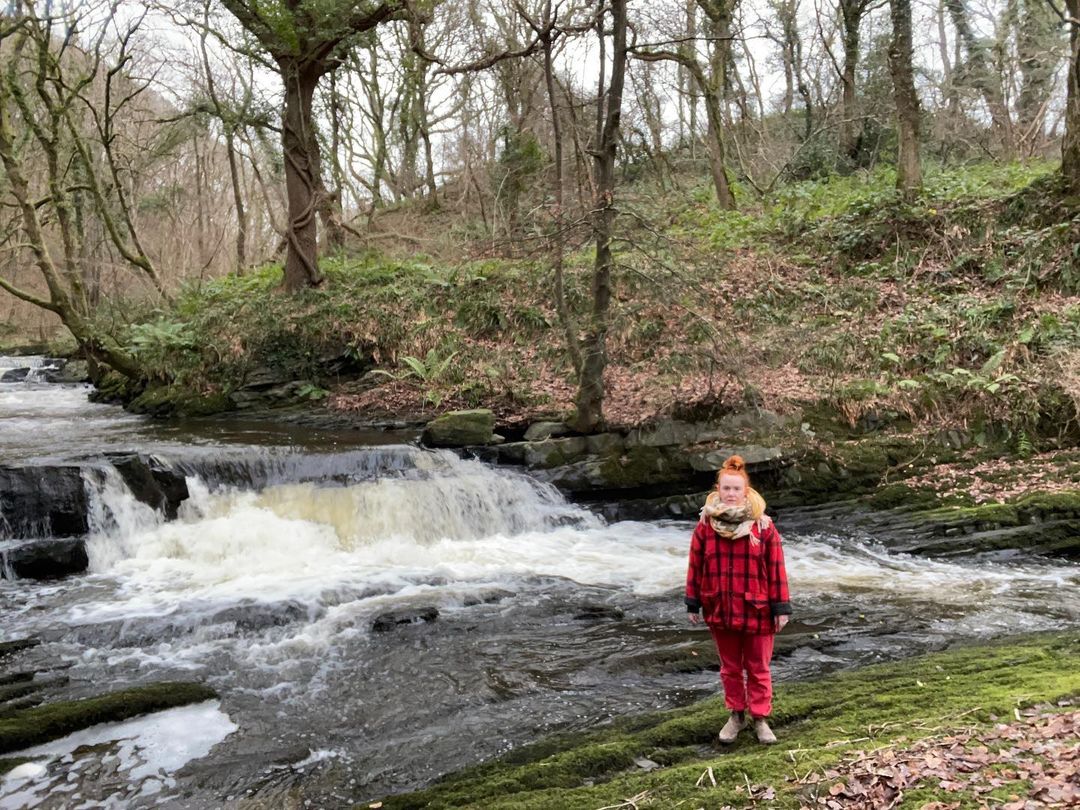
The river Arth starts in the Ceredigion Hills, near the small village of Bethania, the same spring renowned as the source of Ty Nant spring water. The Arth meets the Irish sea in the town of Aberarth, which translates to ‘mouth of the Arth river’, this is the hometown and current residence of artist Rebecca Wyn Kelly. She is an artist who has recently been making sculptural works with found material, deploying these forms of her immediate area, as the content as well – objects that, when repositioned by the artist’s hand operate as superchargers for the ecological, cultural and political intersection that Kelly works in.
An advocate for wild swimming, the artist has been regularly swimming in the river Arth, as an artistic, ritualistic and often shared activity. This changed towards the end of 2021 as Dwr Cymru’s report into the scale of pollution of Wales’ rivers and lakes was published. Throughout 2020, the river Arth had been polluted through 5540 hours of sewage pumped into it.
Rebecca Wyn Kelly began a project titled by the exact number of hours of sewage pollution to the river Arth. The project is put together as a catalyst for collaboration and participation in the wider conversation on water rights in rural communities, through art and education.
In one element of the project Kelly called a town meeting, to invite and encourage local residents and activists from further afield to become citizen scientists, creating and contributing data, both qualitative and quantitative to help first “understand the scale of the problem, as the best way to tackle it”. It is anticipated that this will be the first in a series of shocks that make up an image of the climate crisis that we are currently facing, owing to the damage caused by the Anthropocene.
Another element of the project draws together workshops creating concertina books with imagery and inspiration from the River Arth. Embedding educational principles into the project creates a culture of co-operative caretaking of the natural assets of this corner of Wales. These are ongoing throughout April, with opportunity to sign up and join in the collective conversation to save the river Arth at rebeccawynkelly.com.
The hope throughout the project is that this is to recognise and repair ecological damage, as opposed to accepting irreversible loss. In a recent seminar for Julie’s Bicycle, On Loss and Damage, Professor Saleemul Huq stated that one fundamental metric that is avoided in these conversations, is that of liability and compensation, which would without doubt lie with governmental bodies, their agents and the private sector that contributes to that damage.
5540 is contributing the social turn within current artistic strategies, emphasising collaboration, participation and social intervention and tending to downplay individualism (K. Charney, 2021). Through these strategies we may secure better water safety, and access to safe water as a communal resource.
March 2022
Bibliography
Charney, K. (2021) Sociopolitical Aesthetics. Bloomsbury: London
Julie’s Bicycle (2022) On Loss and Damage. First posted: 2 February 2022. Available from: https://juliesbicycle.com/resource/watch-again-on-loss-and-damage/
Kelly, R. W. (2022) 5540. Available from: https://www.rebeccawynkelly.com/5540-english




